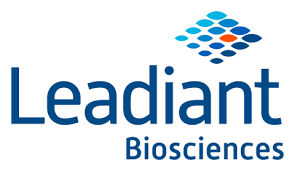预约演示
更新于:2025-05-07
Fatty acid oxidation disorder
脂肪酸氧化代谢病
更新于:2025-05-07
基本信息
别名 Disorders of fatty acid oxidation、Disorders of fatty-acid oxidation、FAOD - fatty acid oxidation defect + [9] |
简介- |
关联
4
项与 脂肪酸氧化代谢病 相关的药物靶点- |
作用机制 脂肪酸替代品 [+1] |
最高研发阶段批准上市 |
首次获批国家/地区 美国 |
首次获批日期2020-06-30 |
靶点 |
作用机制 CRAT刺激剂 |
最高研发阶段批准上市 |
首次获批国家/地区 美国 |
首次获批日期1985-12-27 |
靶点 |
作用机制 PPARδ激动剂 |
最高研发阶段临床2期 |
首次获批国家/地区- |
首次获批日期1800-01-20 |
55
项与 脂肪酸氧化代谢病 相关的临床试验NCT06953505
Pilot Study of At Home Ammonia Monitoring in Patients With an Inborn Error of Ammonia Metabolism
The goal of this observational study is to learn if people with certain ammonia metabolism disorders will measure their ammonia levels at home.
The main question it aims to answer is:
• Will participants measure their ammonia every day?
Participants will be asked to:
* Attend three in-person study visits at the clinic.
* Measure temperature, heart rate, and blood oxygen every day.
* Complete a short survey every day.
* Measure ammonia every day.
The main question it aims to answer is:
• Will participants measure their ammonia every day?
Participants will be asked to:
* Attend three in-person study visits at the clinic.
* Measure temperature, heart rate, and blood oxygen every day.
* Complete a short survey every day.
* Measure ammonia every day.
开始日期2025-06-01 |
申办/合作机构 |
NL-OMON53291
Exercise intolerance in long-chain fatty acid oxidation disorders - EXCITE LcFAOD
开始日期2023-10-30 |
DRKS00032765
Health-related quality of life in children and adolescents with Medium-chain-acyl-CoA dehydrogenase deficiency (MCADD) - Health-related quality of life in MACDD children
开始日期2023-09-01 |
申办/合作机构 |
100 项与 脂肪酸氧化代谢病 相关的临床结果
登录后查看更多信息
100 项与 脂肪酸氧化代谢病 相关的转化医学
登录后查看更多信息
0 项与 脂肪酸氧化代谢病 相关的专利(医药)
登录后查看更多信息
1,123
项与 脂肪酸氧化代谢病 相关的文献(医药)2025-05-01·Molecular Genetics and Metabolism
Newborn screening follow-up for very long-chain acyl-CoA dehydrogenase deficiency in Colorado: Working towards a standardized protocol
Article
作者: Crenshaw, M M ; Wood, T ; Se, McCandless ; Schechter, A ; D'Annibale, O M ; Vockley, J ; Bonn, G ; Sethuraman, M ; Porter, C ; Hall, P L ; Wright, E
2025-05-01·JIMD Reports
Systemic Primary Carnitine Deficiency Presenting With Substantia Nigra and Basal Ganglia Injury: A Case Report
Article
作者: Kashisaka, Mai ; Morisada, Naoya ; Nakai, Ryosuke ; Matsumoto, Masaaki ; Maruyama, Azusa ; Iketani, Kiiko ; Soma, Kento ; Kurosawa, Hiroshi ; Nishiyama, Masahiro ; Sakihama, Hiroshi ; Kobayashi, Hironori ; Saito, Tomoki ; Ueda, Takuya ; Ozaki, Kayo
2025-05-01·Diabetes Research and Clinical Practice
Mechanistic insights into impaired β-oxidation and its role in mitochondrial dysfunction: A comprehensive review
Review
作者: Aslam, Mehral ; Ali, Minahil ; Shah, Fatima Iftikhar ; Iqbal, Maryam ; Aqeel, Amna ; Akram, Areeba ; Rukhma
58
项与 脂肪酸氧化代谢病 相关的新闻(医药)2024-12-21
·漫游药化
FDA今年很忙,但是再忙也未敢忘批药,截至2021年1月1日,FDA批准了53款新药,其中有38个小分子药物,作为化学人一定会很好奇这些化合物有啥特点,结构是啥,小编今天就带大家先睹为快。
1,Avapritinib (BLU-285) 阿伐普利尼
Avapritinib (BLU-285)是一种小分子激酶抑制剂,可有效抑制PDGFRα D842V突变体的活性、在细胞背景下抑制PDGFRα D842V自我磷酸化(IC50=30 nM);同时也是KIT突变(KIT D816V)的抑制剂(IC50=0.5 nM)。
2,Tazemetostat (EPZ-6438)
Tazverik(tazemetostat) (EPZ-6438) 是组蛋白赖氨酸甲基转移酶(Histone-Lysine N-methyltransferase)EZH2的抑制剂。
3,Pizensy(乳糖醇)
Pizensy是一种口服的乳果糖类似物。它是一种渗透性泻药(osmotic laxitaive),可促进水分流入肠道,进而在结肠内达到通便作用。
4,Nexletol (bempedoic acid)
bempedoic acid由美国Esperion Therapeutic 公司研发,是一种治疗血脂异常及降低其他心血管疾病风险的新型小分子化合物。
合成路线如下:
5,Barhemsys(氨磺必利)
氨磺必利是一个多巴胺D2和D3受体阻断剂,上世纪80年代开始应用于精神分裂症治疗。
6,Nurtec ODT(rimegepant)
Biohaven公司的口服CGRP抑制剂rimegepant,用于成人偏头痛的急性治疗。
7, Isturisa(osilodrostat)
3月6日,FDA批准库欣综合征(Cushing syndrome,CS)一线用药Osilodrostat上市,商品名:Isturisa,患者无论是否接受受过垂体切除手术治疗,都可应用Osilodrostat作为治疗药物。Osilodrostat是FDA批准的首个11-β羟化酶抑制,可直接阻断肾上腺皮质醇合成。
8,Zeposia(ozanimod)
ozanimod(商品名ZEPOSIA),用于成人复发性MS(RRMS)患者的治疗。
9,Selumetinib(司美替尼)
Selumetinib (司美替尼)(ARRY-142886 ; AZD6244)是一种MEK 1/2抑制剂和潜在的新药,由AlstraZeneca于2003年获得Array BioPharma Inc.的许可。阿斯利康和MSD于2017年签订了selumetinib的共同开发和联合商业化协议。
10,Tukysa(Tucatinib)
Tukysa(Tucatinib)妥卡替尼 /图卡替尼 (ONT-380)是一种口服TKI(酪氨酸激酶)抑制剂,对HER2具有高度特异性,但对同属人表皮生长因子受体家族的EGFR没有明显抑制作用。
11,Pemigatinib (帕米加替尼)
Pemigatinib(INCB054828)是一种口服有效的,选择性FGFR抑制剂,它对FGFR1,FGFR2,FGFR3,FGFR4的IC50值分别为0.4 nM,0.5 nM,1.2 nM和30 nM。
12,Ongentys(opicapone)
13,INCB28060 (Capmatinib) 卡马替尼;苯扎米特
INCB28060是一种新型, ATP竞争性的c-MET抑制剂,IC50为0.13 nM,抑制RONβ, EGFR和HER-3活性。
14,Selpercatinib (LOXO-292) 塞尔帕替尼
Selpercatinib(LOXO-292)是一种有效的,特异性RET抑制剂。
15,Ripretinib 瑞普替尼
Ripretinib(DCC-2618)是一种具有口服活性的,选择性的KIT和PDGFR-alpha抑制剂。
16, Cerianna (fluoroestradiol F18)
17,Artesunate(青蒿琥酯)
青蒿琥酯是一类控制疟疾症状的抗疟药。
18,Tauvid(flortaucipir F18)
Tauvid(flortaucipir F18)是第一种获得FDA批准,帮助对大脑中的tau病理进行成像的药物。Tauvid是一种放射性诊断试剂,用于需要接受阿尔茨海默病评估的认知障碍成人患者。
19,Lurbinectedin(卢比克替定)
lurbinectedin是PharmaMar研发的海鞘素衍生物,为肿瘤创新药。目前,绿叶制药与PharmaMar在华合作共同开发该药物。
20,Dojolvi(triheptanoin)三庚酸甘油酯
Dojolvi(triheptanoin)三庚酸甘油酯,是一种高纯度、人工合成的7碳脂肪酸甘油三酯,在甘油骨架上通过多个化学合成步骤添加了三个7碳脂肪酸形成。专门为LC-FAOD患者提供中链、奇数碳脂肪酸作为能源和代谢产物替代品。
21,Fostemsavir(BMS-663068)
Fostemsavir (BMS-663068) 是 BMS-626529 的原药,能结合gp120,抑制 HIV-1 与细胞 CD4 受体的结合。
22,Byfavo(Remimazolam)瑞米唑仑/雷米马唑仑
Byfavo(Remimazolam)瑞米唑仑/雷米马唑仑 是一种起效和失效迅速的静脉注射苯二氮卓(benzodiazepine)镇静剂。可用于在时长不超过30分钟的有创医疗程序中,例如结肠镜检查和支气管镜检查。
23,Inqovi(cedazuridine+地西他滨)
Inqovi(cedazuridine/decitabine[地西他滨],口服C-DEC,ASTX727),该药用于骨髓增生异常综合症(MDS)和慢性骨髓单核细胞白血病(CMML)成人患者的治疗。
24,Xeglyze(Abametapir)
Xeglyze(Abametapir)0.74% 洗护剂 是一种金属蛋白酶抑制剂,金属蛋白酶是对虫卵发育和若虫和成虫虱子存活,至关重要的生理过程所必需的酶。
25,Nifurtimox (Synonyms: 硝呋替莫)
Nifurtimox 是一种用于锥虫病 (Trypanosoma cruzi) 的抗虫剂。Nifurtimox 有潜力用于神经母细胞瘤细胞的研究。Nifurtimox 影响乳酸脱氢酶 (LDH) 活性。
26,Olinvyk(oliceridine)
Olinvyk的活性药物成分为oliceridine,这是一种首创的(first-in-class)静脉镇痛药。oliceridine是首个G蛋白选择性激动剂,与静脉注射吗啡相比,镇痛效果更好。oliceridine以μ阿片受体为靶点,通过一种优化作用机制(MOA),优先参与负责疗效的信号通路,减少引起不良反应的信号通路的激活。
27, Evrysdi(risdiplam)
risdiplam是治疗所有3种类型SMA的首个口服药物。
28,Winlevi(clascoterone)
Clascoterone(又称CB-03-01)是一种局部雄激素受体(AR)抑制剂,该新的化学实体正在开发治疗痤疮(暂定品牌名为Winlevi)和男女性脱发(暂定品牌名Breezula)。根据美国FDA审查其1%浓度治疗痤疮以及后期开发其高浓度溶液治疗男性雄激素雄性脱发的结果,其被认为是一种“first-in-class”药物。值得一提的是,这是近40年来针对痤疮治疗的首个新机制药物。
29,Detectnet(Cu 64 DOTATATE)放射性诊断试剂 铜64盐酸盐
Detectnet是首款将Cu 64放射性同位素与生长抑素类似物DOTATATE偶联的诊断试剂。
30,Pralsetinib 普雷西替尼
Pralsetinib (Blu-667) 是新一代的,高效的,选择性RET抑制剂,对于WT RET,RET突变体V804L,V804M,M918T和CCDC6-RET的IC50为0.3-0.4 nM。
31,瑞德西韦(Remdesivir)
2020年10月22日,美国食品药品管理局(FDA)批准了吉利德科学的抗病毒药物瑞德西韦用于治疗新冠住院患者,成为美国首个正式获批的新冠治疗药物。
32,Lonafarnib (Synonyms: Sch66336)
Lonafarnib 是一种口服有效的法尼基蛋白转移酶 (FPTase) 抑制剂,作用于 H-ras,K-ras 和 N-ras,IC50 分别为 1.9 nM,5.2 nM 和 2.8 nM。Lonafarnib 具有抗肝炎三角洲病毒 (HDV) 的活性。
33, Imcivree(Setmelanotide)
setmelanotide是一款首创、寡肽类MC4R激动剂,开发用于治疗罕见肥胖遗传性疾病。
34,Gallium 68 PSMA-11
35,Orladeyo(Berotralstat)贝罗司他
rladeyo(Berotralstat)贝罗司他 是一种新型、口服、每日1次、强效、选择性人血浆激肽释放酶抑制剂,通过抑制激肽释放酶来阻止缓激肽的生成从而预防水肿发作。Orladeyo (berotralstat)用于预防12岁及以上儿童和成人遗传性血管性水肿(HAE)发作,Orladeyo是首个预防HAE发作的口服非甾体药物。
36,Tirbanibulin (Synonyms: KX2-391; KX-01)
37,Relugolix 瑞卢戈利
Relugolix,也称为TAK-385,是一种口服活性的黄体激素释放激素(LH-RH)受体拮抗剂,IC50为0.12 nM。
38,Gemtesa(vibegron)
vibegron可治疗膀胱过度活动症导致的急迫性尿失禁,尿急和尿频等症状。
上市批准临床结果
2024-06-15
·药事纵横
声明:因水平有限,错误不可避免,或有些信息非最及时,欢迎留言指出。本文仅作医疗健康相关药物介绍,非治疗方案推荐(若涉及);本文不构成任何投资建议。
2024年6月12日 ,Ultragenyx公司宣布与美国食品和药物管理局(FDA)达成一致意见,认为脑脊液(CSF)中的硫酸乙酰肝素(HS)是一个合理的替代终点,可以支持加速批准其在研AAV基因疗法UX111 (ABO-102) 治疗IIIA型黏多糖贮积症(MPS IIIA)的生物制品许可申请(BLA)。该公司需要在BLA前会议上与该机构敲定BLA的细节,以便在今年年底或明年年初提交申请。
正如与FDA所讨论的那样,BLA申请将以现有数据为基础,包括正在进行的 Transpher A关键性研究的数据,该研究评估了UX111对MPS IIIA儿童的安全性和有效性。2024年2月初,该公司公布了Transpher A临床1/2期研究新的积极数据,该研究评估了UX111在患有MPS IIIA的儿童中的安全性和有效性,显示单次输注UX111可以显著纠正潜在的代谢疾病,并维持几乎所有患者的认知功能。此外,观察到的脑脊液中硫酸乙酰肝素暴露的减少可以预测UX111治疗后MPS IIIA患者的长期认知功能的改善。
UX111是一种新型体内基因疗法,目前正处于针对MPS IIIA的1/2/3期临床开发阶段。UX111旨在使用AAV9载体,递送SGSH基因的功能性拷贝到中枢神经系统和外周器官,从而弥补SGSH酶的缺失。SGSH酶的缺失导致硫酸乙酰肝素在大脑和身体其它部位累积,从而导致渐进性细胞损伤和神经退行性变的问题。UX111项目在美国获得了再生医学高级疗法、快速通道、罕见儿科疾病和孤儿药称号,在欧盟获得了 PRIME和孤儿药称号。
MPS IIIA是一种常染色体隐性遗传病,由编码N-磺基葡萄糖胺磺基水解酶(SGSH)的基因发生突变所引起。SGSH酶可分解并回收HS。HS调控着一系列重要的生理过程,但是当编码SGSH的基因发生突变而导致酶失活时,HS会在器官中积聚并破坏器官的正常功能,特别是造成中枢神经系统的功能损伤,患者可能出现发育迟缓、行为障碍、癫痫发作等认知或生理异常状况。
Ultragenyx公司首席执行官兼总裁、医学博士Emil D. Kakkis博士说:"美国FDA认定CSF HS是一种相关的生物标记物,从而加快了Sanfilippo综合征的审批速度,这对社区来说是一个关键时刻,为治疗所有致命类型的神经病理粘多糖病铺平了道路。我们感谢患者和护理人员的支持者、科学家和行业领导者的分享与合作,他们提供了支持这一重要决定所需的全面证据。"
关于Ultragenyx Pharmaceutical
Ultragenyx Pharmaceutical(纳斯达克股票代码:RARE)于2010年在硅谷成立,是一家专注于罕见病药物研发与商业化美国生物技术公司。经过2轮融资后,于2014年成功在纳斯达克上市。(截至2024年3月8日,该公司股价50.53美元/股,市值约41.6亿美元。3月26日,市值为37.43亿美元。)其创始人、总裁兼首席执行官Emil Kakkis曾在Harbour-UCLA医疗中心工作,并开发一种针对罕见疾病MPS I 的酶替代疗法。
Ultragenyx目前批准的疗法和临床阶段的产品线包括四个产品类别:生物制剂、小分子、AAV基因疗法和核酸候选药物,有四种已获商业上市批准的产品:用于治疗X-连锁低磷血症(XLH)和肿瘤诱导的骨软化症(TiO)的Crysvita®(burosumab)、用于儿童和成年人黏多糖贮积症VII型(MPSVII)或SLY综合征的Mepsevii®(vestronidase Alfa)、用于治疗长链脂肪酸氧化障碍(LC-FAOD)的Dojolvi®(triheptanoin)和用于治疗家族性高胆固醇血症(HoFH)的Evkeeza®(evinacumab)。
总结
腺相关病毒(AAV)已成为基因治疗的首选递送载体,也被公认为目前最有前景的递送载体,截止目前,全球已获批上市的AAV基因疗法共有8款。
国内布局AAV基因疗法的公司有中因科技、方拓生物、天泽云泰、至善唯新、康弘药业、嘉因生物、锦篮基因、朗信生物、信念医药、纽福斯、九天生物、瑞宏迪医药、克睿基因、瑞吉康、凌意生物等。国内有30余款AAV基因治疗药物IND申报获批,其中今年获批的产品有:瑞吉康的RJK002注射液用于渐冻症、天泽云泰VGN-R09b用于治疗原发性帕金森病和芳香族L-氨基酸脱羧酶缺乏症、凌意生物LY-M001用于治疗I型或III型戈谢病。
参考资料:公司官网
孤儿药基因疗法临床3期上市批准加速审批
2024-03-27
·药融圈
5月30-31日 第八届广州生物医药创新者峰会 扫码立即报名 注:本文不构成任何投资意见和建议,以官方/公司公告为准;本文仅作医疗健康相关药物介绍,非治疗方案推荐(若涉及),不代表平台立场。任何文章转载需得到授权。近年来,罕见病是药企乃至整个社会都很关心的话题。罕见病通常指发病率极低的疾病,又称“孤儿病”。世界各国根据各自实际情况,在罕见病的定义上略有不同。美国将罕见病定义为患者少于20万人/年或其治疗药物销售额预期
难以收回研发成本的疾病;欧盟将患病率小于0.5‰、能导致衰弱或威胁生命的疾病定义为
罕见病;日本将患者少于 5万/年或患病率小于0.5‰作为罕见病定义标准。我国在2021年《中国罕见病定义研究
报告 2021》中将罕见病定义为“新生儿发病率小于1/万、患病率小于1/万且患病人数小于14万的疾病”。其中,80%的罕见病是由遗传缺陷或基因突变造成的,而细胞与基因疗法也正成为罕见病药物研发的热点:相对于常见疾病,罕见病通常由单个基因突变引起,是基因治疗的理想靶标;约有超过90%的罕见病目前缺乏有效治疗药物,基因和细胞治疗作为一种潜在的创新方法,有望为罕见病治疗带来突破性改善。细胞与基因疗法在治疗罕见病方面已展现出重大进展,有望为全球2.6-4.5亿受罕见病影响的人群(包括儿童)带来治愈希望。今天药融圈要介绍的这家公司叫Ultragenyx,它的产品和研发管线均是罕见病药物。Ultragenyx
Pharmaceutical(纳斯达克股票代码:RARE)于2010年在硅谷成立,是一家专注于罕见病药物研发与商业化美国生物技术公司。经过2轮融资后,于2014年成功在纳斯达克上市。(截至2024年3月8日,该公司股价50.53美元/股,市值约41.6亿美元。3月26日,市值为37.43亿美元。)其创始人、总裁兼首席执行官Emil
Kakkis曾在Harbour-UCLA医疗中心工作,并开发一种针对罕见疾病MPS
I 的酶替代疗法。目前,Ultragenyx公司拥有一支在罕见病治疗开发和商业化方面经验丰富的管理团队,在团队的努力下,公司已有4款产品上市,且建立起了一个多元化的候选疗法管线,旨在解决未被满足的医疗需求。其中,Crysvita被批准用于治疗X连锁低磷血症(XLH),以及肿瘤性低磷骨软化症(TIO)。管线布局&产品Ultragenyx目前批准的疗法和临床阶段的产品线包括四个产品类别:生物制剂、小分子、AAV基因疗法和核酸候选药物,有四种已获商业上市批准的产品:用于治疗X-连锁低磷血症(XLH)和肿瘤诱导的骨软化症(TiO)的Crysvita®(burosumab)、用于儿童和成年人黏多糖贮积症VII型(MPSVII)或SLY综合征的Mepsevii®(vestronidase
Alfa)、用于治疗长链脂肪酸氧化障碍(LC-FAOD)的Dojolvi®(triheptanoin)和用于治疗家族性高胆固醇血症(HoFH)的Evkeeza®(evinacumab)。上市产品1.Crysvita®(burosumab/布罗索尤单抗)CRYSVITA于2018年4月在美国获批上市。CRYSVITA是成纤维细胞生长因子23
(fibroblast growth factor23, FGF23)的阻断抗体。当时获批的适应症是6个月以上的儿童及成人X连锁低磷酸盐血症(X-linked
hypophosphatemia, XLH, 又名:家族性低磷酸血症佝偻病)。XLH是一种罕见的、遗传性的、进行性的和终生的骨骼肌肉系统疾病。其病因是体内调磷因子FGF23产生过多或降解障碍,使循环中FGF23水平增加,导致肾脏排磷增多及低磷血症。估计所有的发达国家中有约48,000个病人,包含约36,000成人和12,000儿童。在2020年6月,FDA批准了CRYSVITA的第2个适应症:2岁及以上的儿童及成人肿瘤性骨软化症的低磷酸盐血症(FGF23相关)。肿瘤性骨软化症通常是由产生过量FGF23的良性肿瘤所引起的,该病将会导致严重的低磷酸盐血症、骨折以及肌无力。一般首选的治疗方案是手术切除肿瘤,但对于某些患者,肿瘤无法切除或肿瘤切除后复发。对于这些患者仍然存在着巨大的未满足临床需求。估计所有的发达国家肿瘤性骨软化症的患者数量约为2,000-4,000。除了在美国,目前CRYSVITA还在加拿大,欧洲地区(欧盟、英国、瑞士等),南美,
土耳其等地获批。Ultragenyx正在与日本巨头协和麒麟/Kyowa
Kirin Co.,Ltd.(简称KKC)以及KKC的全资子公司Kyowa
Kirin合作,在全球范围内开发和商业化Crysvita。中国也已经获批上市。2.Mepsevii®(vestronidase
Alfa)MEPSEVII于2017年11月在美国获批上市。该药是一种重组人溶酶体β葡萄糖醛酸酶(酶替代疗法),用于儿童和成年人黏多糖贮积症VII型(MPS
VII,斯莱综合征【Sly
syndrome】)的治疗。黏多糖贮积症(mucopolysaccharidosis,MPS)是一组复杂的、进行性多系统受累的溶酶体病,是由于降解糖胺聚糖的酶缺乏所致。黏多糖贮积症共分为7型。黏多糖贮积症VII型是最罕见的溶酶体贮积症亚型之一,估计所有的发达国家中只有约200个病人,国内目前仍然缺乏大样本流行病学数据。VII型通常会导致多器官功能衰竭,广泛性骨骼功能障碍和死亡。除了在美国,目前MEPSEVII还在欧盟、英国,巴西和墨西哥获批。3.Dojolvi®(triheptanoin)Dojolvi于2020年6月在美国获批上市。该药是一种高纯度的、合成的7碳脂肪酸甘油三酯。它是一种中链、奇数碳脂肪酸,可作为能量来源及体内各反应的代谢产物的替代品,用来治疗儿童和成人长链脂肪酸氧化障碍(Long-chain
fatty acid oxidation disorders, LC-FAOD) 。LC-FAOD是一组罕见的代谢性疾病,该病会抑制脂肪代谢,阻止脂肪转化为能量,并可能导致低血糖、肌肉撕裂、心脏以及肝脏疾病。估计所有的发达国家中有约8,000-14,000个病人。4.Evkeeza®(evinacumab)药融云数据(www.pharnexcloud.com)显示:Evkeeza是一种通过静脉注射给药的全人单克隆抗体,可结合并阻断血管生成素样蛋白3(ANGPTL3)的功能,ANGPTL3是一种在脂质代谢中起关键作用的蛋白质,用于治疗纯合子家族性高胆固醇血症(HoFH)。Evinacumab是Evkeeza中的活性成分,它能结合到体内的一种名为ANGPTL3的蛋白,并阻断其作用。ANGPTL3涉及控制胆固醇水平,阻断其作用可降低血液中的胆固醇水平。Evkeeza通过每月(4周)一次的输注给药。本品为与再生元联合开发。(关联阅读:再生元进击千亿美金俱乐部,减重领域或将续写传奇)药融云数据,www.pharnexcloud.comHoFH是一种极为罕见的遗传性疾病,是家族性高胆固醇血症(FH)中最严重的一种。Evkeeza是美国和欧盟批准的首个ANGPTI-3靶向疗法,用于辅助治疗12岁及以上HoFH患者。目前,Evkeeza正被评估用于5-11岁HoFH患者。在美国以外的发达国家,大约有3,000到5,000名HoFH患者。据估计,每100万人中约有4人患有HoFH,而且由于患者稀少,Evkeeza的治疗成本巨大,平均每年约45万美元。管线更新和临床里程碑1. UX143(Setrusumab)单克隆抗体治疗成骨不全症(OI):ORBIT研究的3期部分预计将于2024年第一季度末全部纳入在后期临床试验Orbit和Cosmic中,患者正在接受给药,这些试验正在评估setrusumab在儿童和年轻成人OI患者中的应用。ORBIT研究的随机、安慰剂对照3期部分预计将招募约150名患者,并于2024年第一季度末全部招募。ORBIT研究的其他长期2期安全性和有效性数据预计将于2024年下半年公布。3期COSMIC研究是一项活性对照研究,旨在评估setrusumab与静脉注射双膦酸盐(IV-BP)治疗相比,对2至5岁以下患者的年度总骨折率的影响。Cosmic预计将在全球20多个地点招募约50名或更多患者,预计将于2024年上半年完成招募。2. GTX-102反义寡核苷酸治疗Angelman综合征:1/2期完全入组;预计2024年上半年的扩张数据
扩大队列的招募工作于2023年12月完成,共招募了53名新患者。共有74名患者参加了1/2期研究,包括剂量递增/扩展研究患者。扩展队列将评估许多与先前纳入的剂量递增/扩展队列相同的安全性、药代动力学和疗效指标,以及一些新的评估。下一次安全性和有效性更新预计将于2024年上半年进行,并计划纳入至少20名扩展队列患者的数据,其中至少有170天的数据。2024年1月,GTX-102被欧洲药品管理局(EMA)纳入优先药品(PRIME)计划。PRIME由欧洲药品管理局(EMA)授予那些根据早期临床数据显示有潜力使需求未得到满足的患者受益的药物。通过PRIME,EMA提供早期和主动支持,以优化开发计划,生成有关药物效益和风险的可靠数据,并加快对药物应用的评估。3. UX701
AAV基因治疗Wilson病:队列3中最后一名患者给药;预计中期第一阶段数据将于2024年中期发布
第1阶段的三个剂量递增队列中的所有患者均已给药。在第1阶段,将评估UX701的安全性和有效性,并在第2阶段(该研究的关键、随机、安慰剂对照阶段)选择剂量进行进一步评估。第一阶段的数据预计将在2024年中期公布,随后将在2024年下半年进行剂量选择并启动第二阶段。4. UX111
AAV基因治疗Sanfilippo综合征(MPS
IIIA):2024年2月初,该公司在第20届年度世界研讨会(WorldSymposium™)上公布了一项正在进行的关键转移(Pivotal
Transfer)研究的新的积极数据,该研究评估了UX111在患有MPS
IIIA的儿童中的安全性和有效性,显示单次输注UX111可以显著纠正潜在的代谢疾病,并维持几乎所有患者的认知功能。该报告还显示,观察到的脑脊液中硫酸乙酰肝素暴露的减少可以预测UX111治疗后MPS
IIIA患者的长期认知功能的改善。有了这些数据和其他数据,正在与FDA进行讨论,以寻求UX111的加速审查路径。5. DTX401
AAV基因治疗Ia型糖原贮积病(GSDIA):3期研究完成给药;第3阶段数据读出预计在2024年上半年。2023年5月,Ultragenyx宣布最后一名患者在3期研究中接受了给药。这项为期48周的研究纳入了8岁及以上的患者,按1:1的比例随机分配至DTX401或安慰剂组。3期安全性和有效性数据预计将于2024年上半年公布。DTX301
AAV基因治疗鸟氨酸氨甲酰转移酶(OTC)缺乏症:3期研究给药患者;预计招生工作将于2024年上半年完成
在正在进行的3期研究中,Ultragenyx正在对患者进行随机分组和给药。关键的64周研究将包括约50名患者,按1:1随机分配至DTX301或安慰剂组。主要终点是通过去除氨清除剂药物和蛋白质限制饮食以及24小时氨水平的变化来测量的反应。招募工作预计将于2024年上半年完成。财务状况2024年2月22日,Ultragenyx公布2023财年年报。2023年Ultragenyx总营收为4.34亿美元,其中Crysvita收入3.25
~ 3.3 亿美元;预计公司2024年总营收达到5.3亿美元。截至2023年末,该公司现金、现金等价物和有价债务证券约7.76亿美元。与2022财年相比,2023财年Ultragenyx的产品销售额增加了6150万美元。这一增长主要是由于拉丁美洲对Crysvita的需求增加,原因是接受治疗的患者数量增加,对其他批准产品的需求持续增加,以及指定患者计划的收入增加;Crysvita合作收入和特许权收入净增加了1560万美元。Crysvita收入的增加主要是由于接受治疗的患者数量增加;从Daiichi
Sankyo/第一三共中获得的收入减少了620万美元,减少原因是2023年完成了技术转让和技术转让期。下表是按主要项目类型和业务活动划分的研发费用明细(千美元):与2022财年相比,2023财年Ultragenyx的研发费用总额减少了5730万美元,主要由于:• 对于基因治疗项目,增加1500万美元,主要与2022年5月从Abeona
Therapeutics收购的UX111项目的开发成本增加以及内部制造的生产材料采购增加有关,部分被DTX401的外部临床制造费用的减少所抵消;• 对于生物和核酸项目,增加1160万美元,主要与UX143和GTX102项目的持续临床进展以及相关的临床开发和制造费用有关,部分被用于治疗III型糖原贮积病的UX053开发费用的减少所抵消;• 对于转化研究,减少了960万美元,主要与IND阶段项目的制造和员工人数费用减少有关;• 前期许可、收购和里程碑费用减少6600万美元,原因是截至2023年12月31日确认的UX143项目临床登记里程碑的费用为900万美元,而截至2022年12月31日收购Genetx的费用为7500万美元;• 对于批准的产品,减少2220万美元,主要是由于北美的Crysvita商业化责任转移到KKC,以及Dojolvi实现了成本效益,部分抵消了Regeneron协作费用的报销以及Evkeeza人员和产品发布成本的增加;截至2023年12月31日,Ultragenyx拥有7.771亿美元的可用现金、现金等价物和可出售的债务证券,该公司称其现有资产将足以满足至少未来12个月的运营需求。参考:NMPA/CDE;药融云数据,www.pharnexcloud.com;FDA/EMA/PMDA;相关公司公开披露;https://www.ultragenyx.com/;https://ir.ultragenyx.com/news-releases/news-release-details/ultragenyx-reports-fourth-quarter-and-full-year-2023-financial;https://www.sec.gov/Archives/edgar/data/1515673/000095017024017879/rare-20231231.htm;https://mp.weixin.qq.com/s/-2XHmyVS_hIOqNfvFBzoGQ;https://www.sec.gov/Archives/edgar/data/1515673/000119312523259557/d542322d424b5.htm;https://mp.weixin.qq.com/s/V8pzc7DjO7oqn2mmm9PPdw;等等。本文仅用于向医疗卫生专业人士提供科学信息,不代表平台立场,不作任何用药推荐 活动推荐 8月 • NDC2024生物医药创新博览会 关键词: 抗体、多肽、核酸、核药,XDC、小分子、注册、临床、CMC(点击下方图片查看详情)▼【关于药融圈】药融圈PRHub旨在帮助生物医药科技型企业进行品牌推广及商务拓展服务,针对客户的真实需求制定系统化解决方案,通过“翻译-降维-场景化”将客户的品牌信息以直白易懂的方式被公众知悉,同时在流量渠道覆盖100万+垂直用户基础上实现合作目的,帮助合作伙伴完成从品牌开始到商务为终的闭环营销服务。我们已经完成了数十场线下1000人规模的生物医药研发类会议,涵盖小分子新药,大分子新药,改良型新药,BD跨境交易等多个领域,服务了百余家上市/独角兽/生物技术/制药企业。
基因疗法上市批准孤儿药核酸药物
分析
对领域进行一次全面的分析。
登录
或

生物医药百科问答
全新生物医药AI Agent 覆盖科研全链路,让突破性发现快人一步
立即开始免费试用!
智慧芽新药情报库是智慧芽专为生命科学人士构建的基于AI的创新药情报平台,助您全方位提升您的研发与决策效率。
立即开始数据试用!
智慧芽新药库数据也通过智慧芽数据服务平台,以API或者数据包形式对外开放,助您更加充分利用智慧芽新药情报信息。
生物序列数据库
生物药研发创新
免费使用
化学结构数据库
小分子化药研发创新
免费使用






